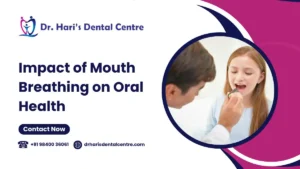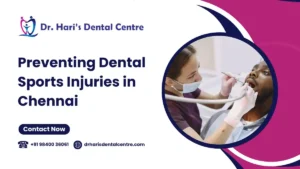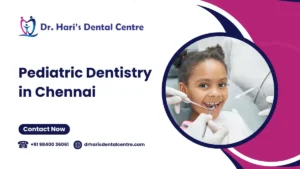What is a dental hygienist, and why does your smile depend on them? In this blog, we’ll break down everything you need to know about dental hygienists, from how they differ from dentists to what they actually do every day. Whether you’re considering visiting one or becoming one yourself, this guide will answer all your questions. Read on to understand the importance of a dental hygienist and how they help keep your teeth and gums clean, healthy, and happy.
What is a Dental Hygienist?
A lot of people go to the dentist but don’t really know what a dental hygienist does. So, what is a dental hygienist? Simply put, a dental hygienist is a licensed professional who helps you keep your impact of mouth breathing and healthy. They work closely with dentists, but they do different things. A hygienist is the one who cleans your teeth, checks for signs of gum disease, and teaches you how to take care of your teeth at home.
Let’s say you haven’t been to the dentist in a year. You walk in, sit down, and the person who first greets you, cleans your teeth, and checks for tartar and plaque buildup that’s the dental hygienist. What is a dental hygienist if not someone who plays a big role in keeping your smile bright and your gums healthy?
What Does a Dental Hygienist Do?
A dental hygienist is a key member of the dental care team who focuses primarily on preventive oral health. What is a dental hygienist? They are licensed professionals who work under the supervision of a dentist to assess oral conditions, perform cleanings, and provide patient education. Their contributions are essential in preventing gum disease, tooth decay, and other oral conditions before they require more extensive treatment.
- Patient Assessment and Screening: Dental hygienists begin by reviewing a patient’s medical history and performing preliminary oral evaluations. They assess the condition of the teeth whitening treatment and gums, chart findings, and take diagnostic x-rays to support the dentist’s clinical decisions. This process is foundational to the distinction in the comparison of what is a dental hygienist vs dentist, as hygienists focus on prevention rather than diagnosis or surgical treatment.
- Professional Cleaning and Treatment: A core responsibility of a dental hygienist is the removal of plaque, calculus (tartar), and stains using manual and ultrasonic instruments. They also apply fluoride treatments and sealants, procedures that are crucial in maintaining oral health and reducing the incidence of cavities.
- Oral Health Education: Dental hygienists play a central role in patient education, teaching proper brushing, flossing, and nutritional habits that support oral hygiene. They tailor advice to each patient’s needs, including specific guidance for pediatric patients highlighting the specialization of what is a pediatric dental hygienist, who focuses on the unique dental care needs of children and adolescents.
- Assisting the Dentist: While the dentist performs restorative or surgical procedures, the hygienist supports by preparing patients, managing dental instruments, and maintaining accurate treatment records. This collaborative effort underscores the difference between what is a dental hygienist vs dentist, especially regarding their respective scopes of practice.
- Monitoring and Documentation: Dental hygienists maintain detailed documentation of clinical findings and hygiene treatments. They monitor oral health over time and alert the dentist to any abnormalities, such as potential signs of periodontal disease or oral cancer.
- Community and Preventive Outreach: In addition to clinical duties, some dental hygienists engage in public health initiatives, delivering preventive care and oral health education in schools, underserved communities, and mobile clinics. These services are especially relevant in pediatric settings, reflecting the role of what is a pediatric dental hygienist in community-based care.
- Educational and Licensure Requirements: What is needed to become a dental hygienist includes completion of an accredited dental hygiene program, typically at the associate or bachelor’s degree level, followed by successful completion of national and regional licensing exams. Continuing education is also required to maintain licensure and stay current with evolving best practices in dental care.
How to Become a Dental Hygienist
Becoming a dental hygienist requires formal education, clinical training, and licensure. Understanding what is a dental hygienist helps clarify their preventive focus compared to dentists, who perform diagnoses and treatments. Specializations like what is a pediatric dental hygienist involve extra training to work with pediatric dentistry. Knowing what is needed to become a dental hygienist from education to scope of practice is key to pursuing this patient-focused healthcare career.
- Educational : Complete an accredited dental hygiene program, usually leading to an associate degree; advanced roles may require a bachelor’s or master’s degree.
- Licensure Process: Pass the National Board Dental Hygiene Examination and a clinical board exam to practice professionally.
- Specialization Options: Pursue pediatric certification or experience to become a pediatric dental hygienist, focusing on children’s oral health and development.
- Clinical Training: Gain hands-on experience in procedures like cleanings, fluoride application, and oral health education through supervised clinical practice.
- Scope of Practice: Understand what is a dental hygienist vs dentist hygienists focus on prevention and education, while dentists handle diagnosis and complex treatments.
Dental Hygienist vs. Dentist: What’s the Difference?
So, you may wonder: is a dental hygienist the same as a dentist? No, they’re not. While both work in dental care, they have different jobs and different levels of training.
Key Differences:
- A dentist diagnoses and treats dental problems like cavities, root canals, and tooth decay.
- A dental hygienist focuses more on cleaning your teeth, checking gum health, and educating you about dental hygiene.
Is a dental hygienist important? Yes, because they’re the first line of defense in preventing dental problems before they start.
Typical Dental Hygienist Duties
What does a dental hygienist do daily? Here are some common tasks:
- Cleaning Teeth and Removing Plaque/Tartar: This is the most common job of a dental hygienist. They use special tools to clean your teeth by removing plaque (a soft, sticky layer of bacteria) and tartar (hardened plaque that brushing can’t remove). This keeps your teeth clean, shiny, and helps prevent cavities and gum disease.
- Taking X-rays: Sometimes, problems hide beneath the surface of your teeth or gums. Dental hygienists take X-rays to help the dentist see things that aren’t visible to the naked eye like tooth decay between teeth, infections, or bone loss.
- Checking for Gum Disease: Hygienists check your gums for signs of gum disease, like redness, swelling, bleeding, or receding gums. They gently measure the depth of spaces between your teeth and gums to see if there’s any damage starting.
- Educating Patients on Brushing and Flossing: They teach you how to brush and floss properly, because doing it the right way makes a big difference. A dental hygienist will also recommend the best toothbrush, toothpaste, or floss based on your needs.
- Applying Fluoride Treatments: After cleaning, a hygienist might apply a fluoride gel or foam to your teeth. This treatment helps strengthen your tooth enamel and prevents cavities, especially in kids and teens, but adults can benefit too.
- Making Notes for the Dentist to Review: Everything the hygienist observes like areas of concern, gum health, or patient complaints is written down and shared with the dentist. These notes help the dentist make a diagnosis or treatment plan.
These duties might sound simple, but they are super important. Without regular cleanings, small problems can turn into bigger ones quickly.
How Long Does it Take to Become a Dental Hygienist?
The time required to become a dental hygienist typically ranges from two to four years, depending on the level of education and career goals. Understanding what is a dental hygienist and what is needed to become a dental hygienist helps clarify this timeline. While an associate degree usually takes two to three years, those pursuing advanced roles or public health positions may continue into bachelor’s or master’s programs.
- Associate Degree Duration: Most dental hygienists complete a two- to three-year associate program that includes classroom instruction and clinical training.
- Advanced Degree Options: A bachelor’s or master’s degree may extend the timeline but can lead to expanded roles in education, research, or administration.
- Licensure Requirements: After completing an accredited program, passing the National Board Dental Hygiene Examination and a clinical exam adds additional preparation time.
- Specialization in Pediatrics: Becoming a pediatric dental hygienist may involve extra clinical experience or certification, depending on the focus of training.
- Training vs. Dentist Path: In the comparison of what is a dental hygienist vs dentist, hygienists can enter the workforce much sooner often within three years whereas dentists complete eight or more years of education and training.
What Are the Benefits of Visiting a Hygienist?
Going to a dental hygienist isn’t just about a clean feeling it’s about keeping your whole mouth healthy.
Top Benefits:
- Prevents bad breath
- Reduces risk of gum disease and cavities
- Enamel and Dentin Defects
- Saves money on future dental work
- Boosts confidence with a cleaner smile
So, if you’re wondering what is a dental hygienist good for it’s all this and more!
Conclusion
Let’s bring it all together. What is a dental hygienist? They’re trained professionals who help keep your teeth and gums clean, educate you about oral care, and work with your What Is a Dental Hygienist to spot any problems early. Whether you’re getting a routine cleaning or advice on better brushing, a dental hygienist plays a big part in your overall health. So don’t skip that appointment. Your smile and your future self will thank you.
Read Also : சிறிய குழந்தைகளுக்கான பல் சிதைவு தடுப்பு




